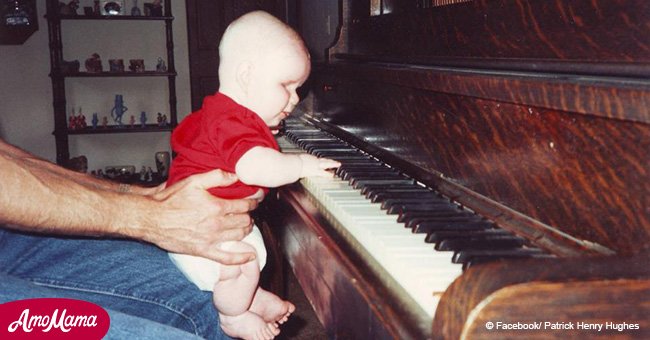
Born crippled and without eyes, this self-taught toddler could play piano by age two
His parents were speechless the first time he touched the keys.
Share Tap published a heartening story of proud parents discovering their disabled son’s hidden talents and supporting him to follow his heart.
When Patrick Hughes was born, he had no eyes, and his ligaments were too small and weak. This meant that he would live life without the gift of sight, and would grow up with mobility issues.
Patrick got used to a pair of artificial eyes and a wheelchair, and could not do many things that a normal child his age could enjoy.
His father was devastated to see the limitations that his son’s disability put on his life, and missed simple pleasures like playing catch with his son outdoors, teaching him to fish and going on spontaneous adventures.
But the parents discovered an incredible fact one day when he sat before the piano in their home for the very first time.
Tending to her son’s curiosity, Patrick’s mother pressed one of the keys. Shockingly, Patrick was able to press the same key after merely one or two tries.
She repeated the process with a different note, and the boy was able to spot the key with similar ease.
The parents were speechless about the unexpected brilliance of their son, and they encouraged him to listen to music and practice on the piano.
Soon, Patrick taught himself to play Twinkle Twinkle Little Star and You Are My Sunshine. Looking at his son excel in music, the father exclaimed that playing music together would be their father-son activity.
School programs and public events provided Patrick a platform to showcase his skills.
When he enrolled in college at the University of Louisville, the teacher of the institute’s music course suggested that he should enroll in the marching band.
Patrick was ecstatic about the idea, but neither he nor his parents were able to determine how to get him to be a part of the band.
Even in the face of struggle, the young boy views his physical challenges as special abilities rather than incapacitating disabilities.
